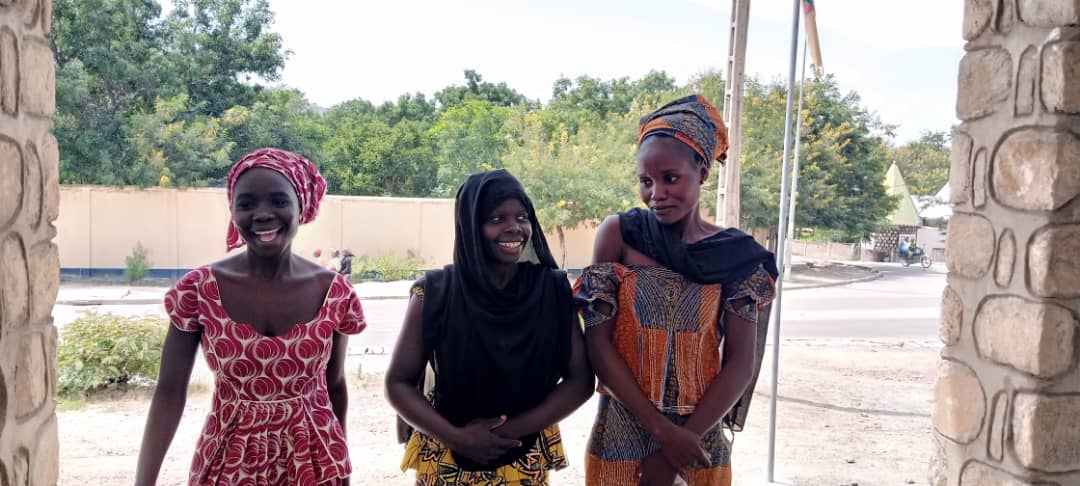Time to read - min

Marie Dawandala, Damaris Doukouya, and Martha Weteya after being acquitted in October 2020 in Cameroon.
Introducing Her Whole Truth: Telling the Stories of Women Under Sentence of Death
Women and gender nonconforming people on death row are a woefully understudied population. In September 2018, the Center published the first global study on the situation of women and girls facing the death penalty. Judged For More Than Her Crime found that women often receive death sentences in proceedings that are inflected by gender bias and in legal systems that are blind to the realities of women’s lives. In many cases they are afforded incompetent defense counsel. To help remedy some of the injustices we identified in our report, we launched the Alice Project, which honors the life of Alice Nungu – a client in Malawi who was sentenced to death for killing her abusive husband in self-defense. Through the Alice Project, the Center seeks to challenge gender-based discrimination in capital cases.
Gender-based discrimination pervades capital prosecutions of women and gender nonconforming people. As in the cases of other incarcerated people, prosecutors seeking the death penalty against women often focus on lurid descriptions of the crimes they have committed. But for women and gender nonconforming people, these accounts are frequently accompanied by gendered tropes such as criticisms of the defendant’s physical appearance, her alleged sexual promiscuity, or her failure as a woman, wife or mother. These narratives fail to address the broader social context in which crimes take place. Our research has shown that, for the majority of women sentenced to death, their lives have been shaped by poverty, exploitation, mental illness, abuse, and gender-based violence. The Center, in a series of profiles called “Her Whole Truth,” aims to tell the stories of women on death row around the world.
The profiles highlighted in Her Whole Truth are written with attention to how gender has affected women’s pathways to incarceration, as well as the outcome of her capital trial. We review all available trial and appeal records and, though we familiarize ourselves with publicly-available media around the case, we do not rely on it unless it is otherwise corroborated. Where possible, our profiles aim to center the voices of women under sentence of death. Often, incarcerated women have had their stories told for them, or not told at all. For a woman under sentence of death, the act of telling her story can be a restorative process in itself, and one which educates the reader on the structural inequities that lead to serious crimes. Centering the voices of affected women supports an intersectional lens in which the woman speaks directly about how her identities have affected her life and court case.
Through these stories, the Center aims to introduce into the dialogue the wider social context in which women and gender nonconforming people commit serious crimes. For example, through the account of Lisa Montgomery’s life, it becomes evident that the crime that she committed cannot be severed from the unremitting sexual and physical torture that she endured as a child and as an adult. Meanwhile, Merri Utami’s story illustrates how migrant domestic workers are targeted by drug cartels and demonstrates the ways in which poverty, motherhood, and a history of abuse can be weaponized by bad actors to exploit women. Kanizan Bibi’s profile highlights the impact of police brutality and, further, how those with serious mental illness are vulnerable to mistreatment in the criminal legal system. The stories of Marie Dawandala, Damaris Doukouya, and Martha Weteya reveal how poverty and language barriers obstruct access to legal representation and a fair trial – which can result in innocent people being sentenced to death.
The profiles are emblematic of issues that plague criminal legal systems dealing with both innocent and guilty people. Tragically, these accounts are far from unique. We aim to give faces to the human cost of institutional violence perpetrated by justice systems around the world, and to humanize women who are convicted of serious crimes.